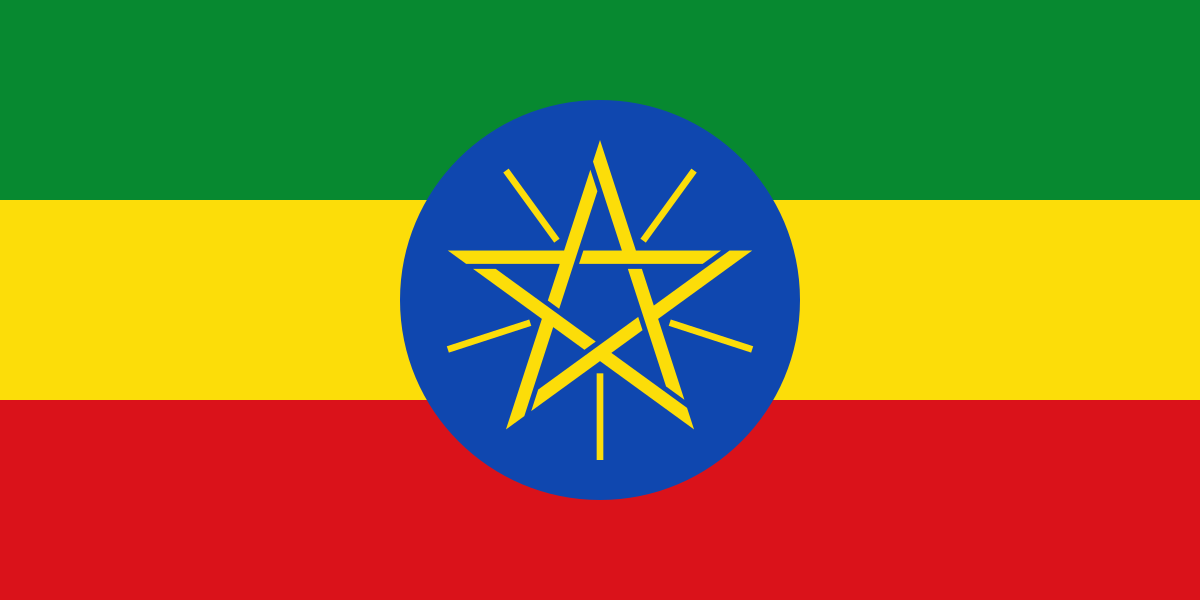
Ethiopia Country Report
Country Risk Level: High

Download Report as PDF
Get a printable version of this country report for offline reference.
Ethiopia is classified as a HIGH RISK country. Internal conflict, terrorism, and health risks pose the primary threats to travellers.
Essential Precautions:
- Avoid travelling through unlit areas or travelling alone at night.
- Avoid demonstrations and protests, as they often turn violent.
- Avoid street food in general, and only drink bottled water.
- Do not display overt forms of wealth.
- Only use ATMs during daylight hours and at large facilities, preferably inside banks with guards.
- Avoid travel to the border areas with Kenya, Sudan, South Sudan, and Eritrea; the Somali Regional State; the Southern Nations, Nationalities, and People's Region (SNNPR); the East Hararghe region and the Guji zone of Oromia; and Benishangul Gumuz and the western part of Oromia State.
Insurance becomes a priority if you intend to travel or work in Ethiopia
Although the country has unique attractions, Ethiopia faces major challenges regarding internal conflict and political instability. Health challenges include common outbreaks of cholera, malaria, and dengue fever. The situation can change rapidly, so it's essential to consult up-to-date travel advisories from your government or reliable sources like the U.S. State Department, UK Foreign Office, or your country's equivalent. Here are some potential risks associated with travel to Ethiopia:
Security Concerns
Ethiopia has experienced periods of civil unrest, protests, and inter-communal violence, particularly in certain regions like Oromia, Amhara, and Tigray. While the situation can vary, travellers should stay informed about current events and avoid areas where tensions are high. Additionally, border areas, particularly those near Eritrea, Somalia, South Sudan, and Sudan, may have security risks due to regional conflicts and insurgent activity.
Terrorism
There is a risk of terrorism in Ethiopia, with sporadic attacks targeting government buildings, public gatherings, and places frequented by foreigners. The Somali-based extremist group Al-Shabaab has carried out attacks in the past, particularly in border regions. Travellers should remain vigilant, especially in crowded areas and places with a high concentration of foreigners.
Crime
Petty crime, such as theft and pickpocketing, can occur, particularly in crowded markets, transportation hubs, and tourist areas. Travellers should take precautions to safeguard their belongings and avoid displaying signs of wealth or carrying large sums of cash.
Road Safety
Ethiopia has a high rate of road traffic accidents, often due to poor road conditions, inadequate infrastructure, and reckless driving. Travellers should exercise caution when using roads, especially outside major cities, and consider hiring a reputable driver or using licensed transportation services.
Health Risks
Ethiopia faces health challenges, including outbreaks of diseases such as cholera, malaria, and dengue fever. Travellers should take appropriate health precautions, including vaccinations, anti-malarial medication, and practising good hygiene and food safety measures.
Political Stability
Ethiopia's political situation has been fluid in recent years, with significant changes in leadership and ongoing tensions between the government and various ethnic groups. While efforts have been made to promote stability and reconciliation, travellers should stay informed about the political climate and be prepared for potential disruptions.
Communication and Infrastructure
While major cities like Addis Ababa have relatively good infrastructure and communication networks, rural areas may lack basic amenities and services. Travellers venturing into remote regions should be prepared for limited access to essentials like electricity, clean water, and medical facilities.
Cultural Sensitivities
Ethiopia has a rich cultural heritage and diverse ethnic groups, each with its own customs, traditions, and languages. Travellers should respect local customs and dress modestly, especially when visiting religious sites and rural communities.
Ethnic Tensions
Ethiopia is a diverse country with numerous ethnic groups, and tensions between different communities can occasionally lead to localised conflicts. Travellers should be aware of any potential ethnic tensions in the regions they plan to visit and avoid participating in or inadvertently exacerbating inter-ethnic disputes.
Protests and Demonstrations
Political protests and demonstrations occasionally occur in Ethiopia, particularly in urban areas. While most protests are peaceful, they can sometimes escalate into violence or lead to disruptions in transportation and services. Travellers should avoid participating in or being caught up in such events and monitor local news sources for updates.
By staying informed, exercising caution, and respecting local customs and laws, travellers can mitigate many of the risks associated with travel to Ethiopia and enjoy a memorable experience in this culturally rich and historically significant country.
Choosing the Right Insurance for Your Trip to Ethiopia
Many insurers exclude cover for travel to Ethiopia. It is vital to check that your policy includes journeys to this nation. Confirm if your policy coverage includes medical expenses, repatriation, and crisis management. The options for care within Ethiopia are currently poor. Medical evacuation may be necessary for critical care.
Required Vaccinations:
- Yellow Fever certificate required if travelling from a country with risk of yellow fever transmission; recommended for all areas in Ethiopia except Afar and Somali regions.
Pre-Trip Checklist:
- Carry a copy of your passport.
- Bring a necessary supply of prescription medication.
- Bring a copy of your prescription in case medication is lost or stolen.
- Consider bringing mosquito repellent, long sleeves, and pants.
LGBT Travel Guides for Ethiopia
Ethiopia is generally conservative regarding LGBTQ+ rights and attitudes. Same-sex sexual activity is illegal under Ethiopian law, and societal acceptance of LGBTQ+ individuals is limited. Overall, LGBTQ+ travellers to Ethiopia should be aware of the legal and social context and take necessary precautions to ensure their safety and well-being. While it's possible to visit Ethiopia, LGBTQ+ individuals may find it necessary to navigate carefully and prioritise discretion during their travels.